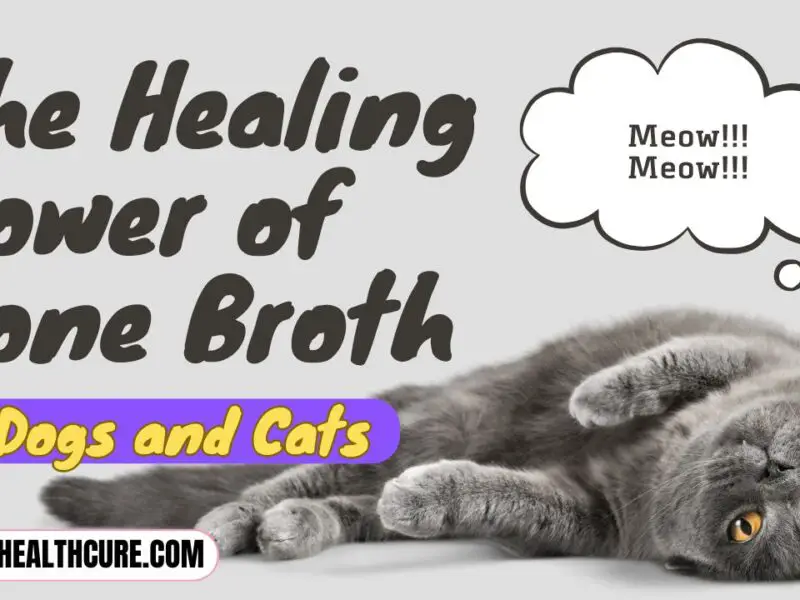Introduction
Pets are family, and ensuring their well-being is a top priority for pet parents. A crucial aspect of their health is a properly functioning digestive system, which influences their overall vitality and happiness. Herbs and supplements for better digestion in pets have gained popularity as a natural, effective way to support gut health and alleviate common digestive issues. Let’s delve into how these natural remedies can transform your furry friend’s life. So let’s start and know the Herbs and Supplements for Better Digestion in Pets
Understanding Pet Digestion
Anatomy of a Pet’s Digestive System
To understand how herbs and supplements can help, it’s essential to grasp the basics of your pet’s digestive system. Dogs and cats have specialized systems designed to break down proteins and fats efficiently. However, they’re also susceptible to digestive upsets caused by dietary changes, stress, or underlying health issues.
Common Digestive Issues in Pets
Common problems include diarrhea, constipation, gas, bloating, and vomiting. Recognizing the symptoms early is vital to ensure timely intervention and avoid complications.
Benefits of Using Natural Remedies
Advantages of Herbs Over Synthetic Medications
Herbs offer a gentle, holistic approach with fewer side effects compared to synthetic drugs. They provide long-term benefits without compromising your pet’s overall health.
Evidence-Based Benefits of Herbal Supplements
Scientific studies have shown that herbs like chamomile and ginger can significantly improve digestion, reduce inflammation, and soothe the gut lining, making them an excellent choice for pets.
Popular Herbs for Digestive Health
Chamomile: Benefits and Usage
Chamomile is renowned for its calming properties. It’s an excellent remedy for pets with upset stomachs, as it reduces inflammation and alleviates gas.
Peppermint: Soothing Properties
Peppermint helps relax the muscles of the digestive tract, making it ideal for pets suffering from cramps or bloating.
Ginger: Anti-Nausea and Gut Health
Ginger is a powerhouse for preventing nausea and promoting smooth digestion. It’s particularly effective for pets prone to motion sickness.
Supplements to Support Digestion
Probiotics: Balancing Gut Microbiota
Probiotics are live bacteria that help maintain a healthy balance in the gut. They’re beneficial for pets recovering from antibiotics or dealing with chronic digestive issues.
Digestive Enzymes: Assisting Nutrient Absorption
These enzymes break down food components, ensuring your pet absorbs essential nutrients efficiently. They’re particularly helpful for aging pets.
Prebiotics: Feeding Healthy Gut Bacteria
Prebiotics serve as food for good bacteria, promoting a thriving gut microbiome and enhancing overall digestion.
Combination of Herbs and Supplements
Blending Herbs and Supplements for Optimal Results
Combining herbs like chamomile and supplements such as probiotics can provide comprehensive digestive support. For instance, chamomile’s anti-inflammatory properties complement probiotics’ ability to restore gut flora.
Examples of Safe Combinations
A safe blend might include ginger tea paired with a probiotic supplement to soothe nausea while enhancing gut health. Always consult with your veterinarian to tailor combinations to your pet’s needs.
Homemade Herbal Remedies
Easy DIY Herbal Teas for Pets
Creating herbal teas is a simple way to incorporate digestive-supportive herbs into your pet’s routine. Chamomile or peppermint teas can be brewed, cooled, and served in small quantities.
Recipes for Digestive-Supporting Meals
Incorporate ginger or turmeric into homemade meals for pets. For example, adding a pinch of grated ginger to cooked chicken and rice can provide a soothing, nutrient-rich dish for upset stomachs.
Commercial Products
Evaluating Herbal Supplements on the Market
Not all commercial herbal products are created equal. Look for supplements with clear labeling, organic ingredients, and third-party testing to ensure safety and efficacy.
How to Choose the Right Product for Your Pet
Consider your pet’s specific needs and consult with your vet. For instance, a senior dog with chronic indigestion might benefit more from a supplement containing both digestive enzymes and probiotics.
Safety and Dosage Guidelines
Safe Dosages for Pets of Different Sizes
Herbs and supplements must be administered carefully. Small dogs and cats require significantly lower dosages than larger breeds. Always start with the lowest recommended dose.
Signs of Overuse or Allergic Reactions
Watch for signs of overuse, such as diarrhea or lethargy. Allergic reactions, though rare, can include itching or swelling. If these occur, discontinue use and consult a vet immediately.
Special Considerations
Age-Specific Needs: Puppies and Senior Pets
Puppies have sensitive systems that require gentle remedies like chamomile, while senior pets may need stronger support such as digestive enzymes.
Digestive Support for Pets with Chronic Illnesses
Pets with conditions like inflammatory bowel disease (IBD) may benefit from a combination of herbal anti-inflammatories and prebiotics tailored to their needs.
Veterinarian Recommendations
Importance of Consulting a Vet Before Starting Any Supplement
Veterinarians can provide guidance on appropriate supplements and rule out underlying conditions causing digestive issues.
Recognizing When Professional Help Is Needed
If digestive problems persist despite using herbs and supplements, seek veterinary assistance to identify and address the root cause.
Lifestyle Changes for Digestive Health
Diet Modifications
Switching to high-quality, easily digestible food can work wonders. Incorporate natural sources of fiber like pumpkin for added benefits.
Importance of Hydration
Ensure your pet always has access to fresh water, as dehydration can exacerbate digestive problems.
Role of Exercise in Maintaining Gut Health
Regular physical activity stimulates digestion and prevents issues like constipation.
Success Stories
Testimonials from Pet Owners
Many pet owners report significant improvements in their pets’ digestion after introducing natural remedies. For example, a dog owner shared how probiotics transformed their pet’s chronic diarrhea into regular, healthy stools.
Case Studies of Pets Benefitting from Herbs and Supplements
A senior cat with IBD saw remarkable improvements in appetite and stool consistency after starting a regimen of ginger and probiotics.
Common Myths and Misconceptions
Debunking Myths About Herbal Remedies
One common myth is that herbs are entirely safe in any quantity. However, even natural remedies can cause harm if misused.
Understanding Limitations of Natural Treatments
While herbs and supplements are beneficial, they’re not a substitute for veterinary care in severe cases.
Frequently Asked Questions (FAQs)
1. Can I give my pet human herbal supplements?
It’s best to avoid human supplements, as they may contain ingredients toxic to pets. Always choose products formulated specifically for animals.
2. How long does it take for herbal remedies to work?
Results can vary, but most pets show improvement within a few days to weeks of consistent use.
3. Are there any side effects of using digestive supplements?
Side effects are rare but may include mild stomach upset or allergic reactions. Start with small doses to monitor your pet’s response.
4. Can herbs cure chronic digestive issues in pets?
Herbs can support and manage chronic issues but are not a cure. They work best as part of a comprehensive treatment plan.
5. How do I store herbal supplements?
Store them in a cool, dry place away from direct sunlight to maintain potency.
6. Should I stop other medications when using herbs?
Never stop prescribed medications without consulting your vet. Herbs and supplements can often be used alongside traditional treatments.
Conclusion
Digestive health is essential for your pet’s overall well-being. Incorporating herbs and supplements for better digestion in pets can provide a natural, effective way to support their gut health. From chamomile to probiotics, the options are vast and versatile. Remember to consult your veterinarian, follow safety guidelines, and observe your pet closely for the best results. By taking proactive steps, you’re ensuring a happier, healthier life for your furry friend.


